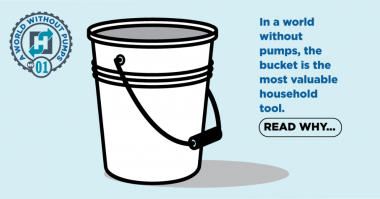Contributor: Hydraulic Institute
What makes smart pumps so brilliant? Well, there are so many reasons, but don’t take our word for it. Let’s compare! Start with one smart pump and one conventional pump. The smart pump has a brain. It incorporates a logic system that can figure out correct flow based on actual demand. When demand is low, the pump’s integrated sensors know to automatically respond by reducing motor speed and flow – in turn, cutting energy costs. But not so smart pump just keeps going at a free program rate, no matter what the demand; wasting energy and money. So already there’s a pretty clear advantage. But let’s introduce one more factor: in January 2020, new Department of Energy standards went into effect for clean water pumps.
With a new smart pump, you’re well on your way to meeting those standards. All of the energy-saving technology is built-in, including integrated controls and a variable frequency drive calibrated for the actual pump curve. It all ensures optimal efficiency for your building and it’s all ready for easy installation. The old constant speed pump? Good luck achieving the savings! The VFD and instrumentation would need to be installed separately; it won’t be calibrated to the actual pump. In fact, a contractor has to mount and wire the variable frequency drive somewhere near the pump, drill into the pipe to install sensors in just the right place, understand the VFD well enough to program the drive, then hope the energy savings comes through and is sustained over time. So, as you can see… a smart pump is just simply ready to go and save and meet DOA standards as well as state code requirements. Bye-bye old pump! Hello smart pump! The benefits just keep adding up.
First, off the initial cost is quickly offset by the absence of other installation costs. Secondly, the speed of the pump simply adjusts through advanced integrated controls. Third, smart pump technology is available in all sizes. So, even small low horsepower systems can get in on big savings. Finally, smart pumps routinely achieve a Hydraulic Institute energy rating of at least 50. Meaning they have the potential to save at least 50% on energy costs and that’s why a smart pump is so brilliant. Check into a new smart pump. You’ll see it makes all the sense in the world.
Can We Do Better? Understanding the U.S. Department of Energy / NRCAN 2020 Pump Regulations




Comments